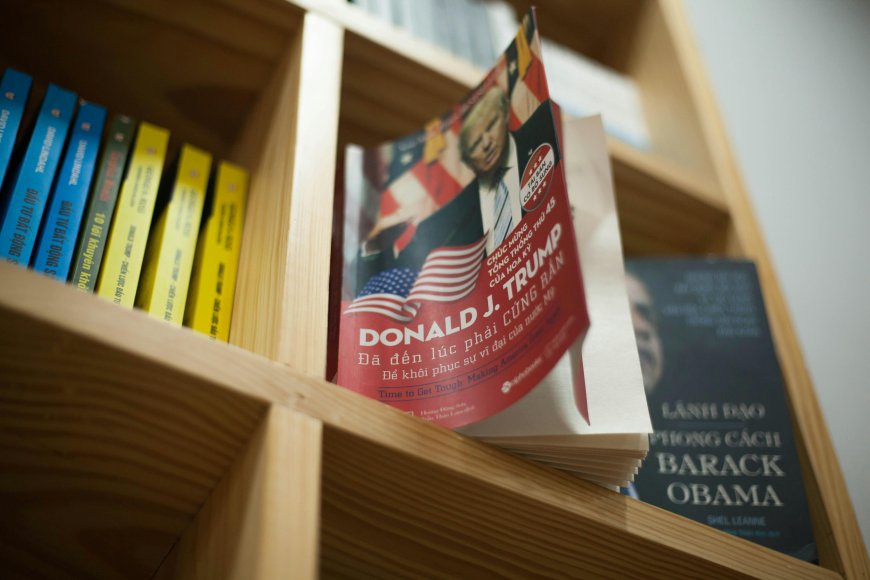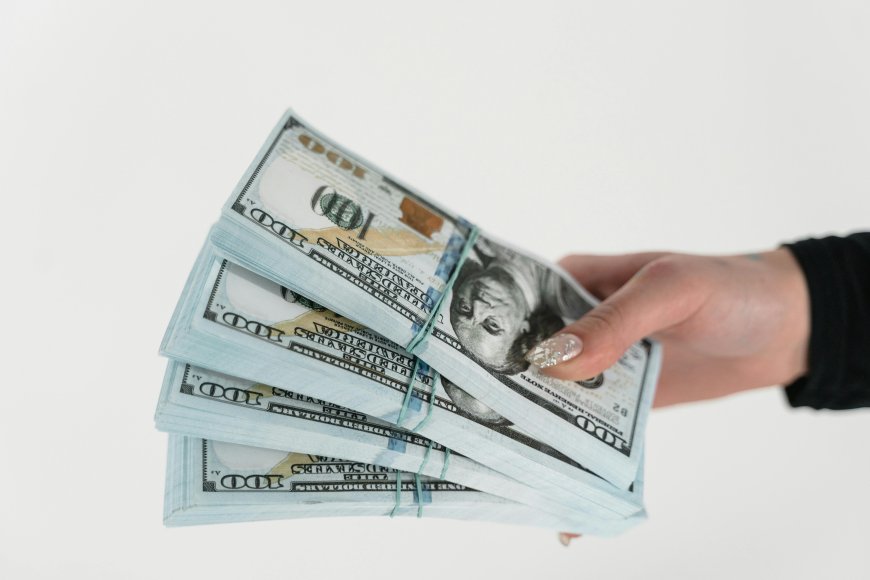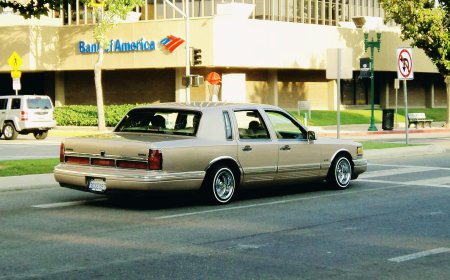Trump’s $500M Civil Fraud Penalty Overturned by Appeals Court
Appeals court overturns Trump’s half-billion-dollar fraud penalty, reshaping a high-stakes legal battle with political and financial consequences.

Donald Trump has lived much of his public life at the intersection of wealth, power, and controversy. But even by his standards, the half-billion-dollar civil fraud penalty once levied against him was extraordinary—both in its scale and its symbolism.
Now, in a decision that has stunned legal experts and electrified the political world, an appeals court has thrown out the penalty. The ruling not only spares Trump a massive financial blow but also alters the trajectory of a case that had been seen as a potential breaking point for the former president’s empire.
The decision resonates far beyond Trump Tower. It raises uncomfortable questions about accountability for the powerful, the boundaries of judicial remedies, and the enduring clash between politics and the law in America.
The Origins of the Civil Fraud Case
The civil fraud case against Trump stemmed from accusations that he and the Trump Organization inflated the value of assets—including iconic properties like Trump Tower, Mar-a-Lago, and various golf resorts—to secure better loans and insurance deals.
Prosecutors argued that the inflated valuations allowed Trump to obtain financial benefits unavailable to ordinary borrowers, essentially gaming the system. Supporters countered that real estate valuations are often subjective, and Trump’s practices fell within the industry’s gray areas.
When the lower court imposed a $500 million penalty, the ruling was heralded by critics as a landmark moment of accountability. For Trump, however, it was portrayed as politically motivated retribution—part of what he has consistently branded a “witch hunt.”
The Appeals Court Decision
The appeals court’s ruling turned that narrative on its head. While it did not dismiss concerns about misrepresentation, the court concluded that the penalty itself was excessive and legally flawed.
Key findings included:
- Procedural issues: The lower court was found to have mishandled certain evidentiary standards.
- Disproportionate remedy: Judges described the $500 million penalty as “beyond the bounds of proportionality” given the evidence presented.
- Ongoing scrutiny: The ruling leaves open the possibility of further legal review, but on a more limited financial scale.
For Trump, the immediate effect is enormous. The financial sword hanging over his head—one that could have forced the liquidation of properties and drained his resources—has been removed.
Political Shockwaves
The ruling is not just a legal win; it is a political windfall.
- Financial freedom: Trump avoids tying up half a billion dollars in escrow or forfeitures, freeing him to focus funds on his presidential campaign.
- Momentum shift: The decision provides him with a powerful talking point, reinforcing his narrative of resilience against what he calls a politically weaponized justice system.
- Public perception: For many voters, especially undecided moderates, the reversal complicates the idea that Trump is “cornered” by the law.
Democrats, meanwhile, face a messaging challenge. For months, the penalty was cited as evidence of Trump’s vulnerability. Its dismissal forces them to pivot, highlighting the broader pattern of legal entanglements rather than one singularly massive case.

The Human Side of the Legal Drama
For all the legal jargon, the case has a deeply human dimension.
Inside Trump Tower, staff reportedly feared the penalty could trigger layoffs, asset sales, or restructuring of the company itself. Longtime employees worried about whether the brand could survive a financial blow of that magnitude.
Trump’s supporters, many of whom feel deeply tied to his fortunes, saw the penalty as an attempt to bankrupt not just the man but the movement. Some even organized fundraising campaigns—symbolic in scale, given the numbers involved—to demonstrate solidarity.
The ruling delivered a collective exhale. In Trump’s circles, it is being described as a reprieve, not just for the man but for the identity and image of the empire he has cultivated over decades.
Implications for the 2024 Election
The political implications are enormous. With the penalty gone, Trump is able to keep his campaign finances intact at a critical moment.
- Campaign war chest: Trump can now allocate more money toward advertising, legal defense, and ground operations in swing states.
- Narrative control: He is already seizing the ruling as proof that the system is “finally correcting itself” against unfair treatment.
- Opposition strategy: Democrats and rival Republicans will need to recalibrate their strategies, no longer able to point to the penalty as a sign of Trump’s looming collapse.
For Trump, the optics matter as much as the legal outcome. In politics, perception can be more powerful than fact, and the image of a man escaping a half-billion-dollar financial noose reinforces his campaign message of defiance.
Broader Questions About Accountability
The case has also reignited debates about fairness in the justice system.
Critics argue that ordinary Americans face harsh consequences for relatively minor financial missteps, while the powerful appear to maneuver their way out of massive penalties. They warn that the ruling could weaken deterrents against corporate fraud.
Defenders of the decision counter that the judiciary must apply proportional justice, not politically charged punishment. They argue that excessive penalties risk undermining trust in the courts just as much as leniency does.
This broader debate—about whether the powerful are held to the same standards as ordinary citizens—may outlast the Trump case itself.
What Comes Next for Trump
While the half-billion-dollar penalty has been erased, Trump’s legal battles are far from over. He still faces:
- Multiple criminal indictments tied to election interference and classified documents.
- Ongoing civil suits involving his business dealings.
- Regulatory scrutiny from state-level authorities.
Legal experts believe prosecutors could attempt to restructure financial penalties or seek narrower remedies in the fraud case. But for now, the pressure valve has been released.
Conclusion: A Defining Victory with Uncertain Consequences
The overturning of Trump’s $500 million civil fraud penalty marks a defining moment—not only in his legal saga but in America’s ongoing struggle to balance law, politics, and power.
For Trump, it is both vindication and opportunity: vindication that bolsters his narrative of survival against the odds, and opportunity to channel his energy into reclaiming the White House.
For the nation, it leaves lingering questions about whether justice is applied equally, and whether political gravity truly holds for those who seem to defy it.
As Trump moves forward, the echoes of this ruling will reverberate far beyond the courtroom, shaping not just the 2024 election but the larger story of accountability in modern American democracy.
FAQs
1. What was Trump accused of in the civil fraud case?
He was accused of inflating property values to gain better financial terms from banks and insurers.
2. Why did the appeals court throw out the $500 million penalty?
The court ruled the penalty was excessive and based on procedural flaws in the lower court’s handling of evidence.
3. Does this mean Trump is cleared of wrongdoing?
No. The ruling removed the penalty but did not dismiss all allegations of financial misrepresentation.
4. How does this affect Trump’s presidential campaign?
The decision frees Trump from a major financial burden, allowing him to focus resources on his campaign and other legal defenses.
5. Could prosecutors still pursue Trump financially?
Yes. They may seek revised penalties or alternative remedies, though on a smaller scale than the original half-billion-dollar figure.
What's Your Reaction?
 Like
0
Like
0
 Dislike
0
Dislike
0
 Love
0
Love
0
 Funny
0
Funny
0
 Angry
0
Angry
0
 Sad
0
Sad
0
 Wow
0
Wow
0




































































